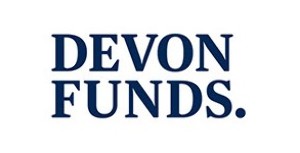
We asked did Devon Funds Management have a much better year in the 12 months ended March 31?
The answer isn't clear.
The numbers it reported to the Companies Office suggested it did, but Paul Glass, who owns nearly 48% of Devon's parent, Investment Services Group (ISG), says the numbers Devon reported “don't mean anything,” and neither do the numbers the rest of the funds management industry reports, he says.
“People take revenues and expenses for the underlying business at the parent company level” which don't have to report their financial results.
“I wouldn't draw any conclusions from the accounts” that Devon published, Glass says.”I wouldn't read our accounts and think that there's any meaningful information in them. That's the same across the industry.”
ISG doesn't file its financial results with the Companies Office.
But asked what kind of a year his group did experience, Glass wouldn't be drawn: “We're a private business.”
But the managers of funds that members of the public invest in are required by law to report their financial results.
The regulator, the Financial Markets Authority, disputes that the accounts of fund managers “are a work of fiction.”
Accounts should reflect the costs
“The financial statements should fairly reflect the costs charged to the individual funds they manage and the operating costs incurred,” the FMA said in response to Good Returns query.
“While fund managers can contract with related parties and on-charge costs, such transactions should be supported by contracts and audited,” it says.
“This disclosure can enable greater insight around the arms length basis of related party transactions and should be supported by sufficient, verifiable evidence showing similar charges would be incurred with an unrelated provider,” The FMA says.
“Investors, both retail and professional, and the public should be able to rely on audited financial statements but we accept that the financial styatements of a fund manager's holding company are not as useful for the investors of the underlying funds.”
The regulator says the financial statements are important as a check and balance on the value of the fund investments, to ensure there is custody over the investments and that money going in and out of the funds is handled appropriately.
“All of this is not directly visible in the financial statements. However, the auditor should gain comfort about these processes as part of the audit.”
What Devon's accounts say
For what it's worth, Devon's accounts for the year ended March 31 showed it lifted net profit 14.3% to nearly $3.4 million in the year ended March 31, largely because of a hefty rise in performance fees and despite significant lifts in directors' fees and employee costs.
That followed a particularly bad year in the year ended March 2023 when net profit fell 26.7% to $2.9 million on a revenue decline of 21.2% to $8.2 million.
Devon's management fees were up 6.5% to $7.9 million in the latest year and its performance fees jumped to $1.8 million from $128,282 the previous year.
Devon's expenses jumped 36.7% to nearly $6.8 million with directors' fees up 47.8% to $944,062 and employee salary and wages up 49.5% to $3.1 million.
Despite the lift in profit, Devon held its dividends steady at $1.5 million.
Its funds under management rose 13.7% to $138.5 million while its largest fund, the Devon Alpha Fund, lifted fee income by 11.2% to $1.3 million.
Devon's parent ISG also owns Clarity Funds, JMI Wealth, Select Wealth Management and Tahito and claims $6.5 billion in funds under management.
Strategic review
It is currently conducting a strategic review with external adviser Murray & Co but Glass says nothing is likely to eventuate in the short term.
“It will take the balance of the year” and will canvas “the options and opportunities and seeing what makes sense,” he says.
“Everybody at the moment is trying to figure out how they can get additional scale. Costs have gone up materially and fees have been under pressure,” Glass says, adding that his audit fees have gone up 42%.
“Pressure from the regulator is very apparent right across our industry as well,” he says.
“Like so many businesses, we're looking at how to be sustainable in the longer-term.”
Glass didn't answer the question as to why his group continues to run so many different brands, although he did say they do share “behind-the-scenes common infrastructure.”
But there's no requirement on any of the brands to use product from any other part of the group, he says.
“It's one way of achieving back-end scale. For us, that's been quite a successful model.”



Comments
No comments yet.
Sign In to add your comment